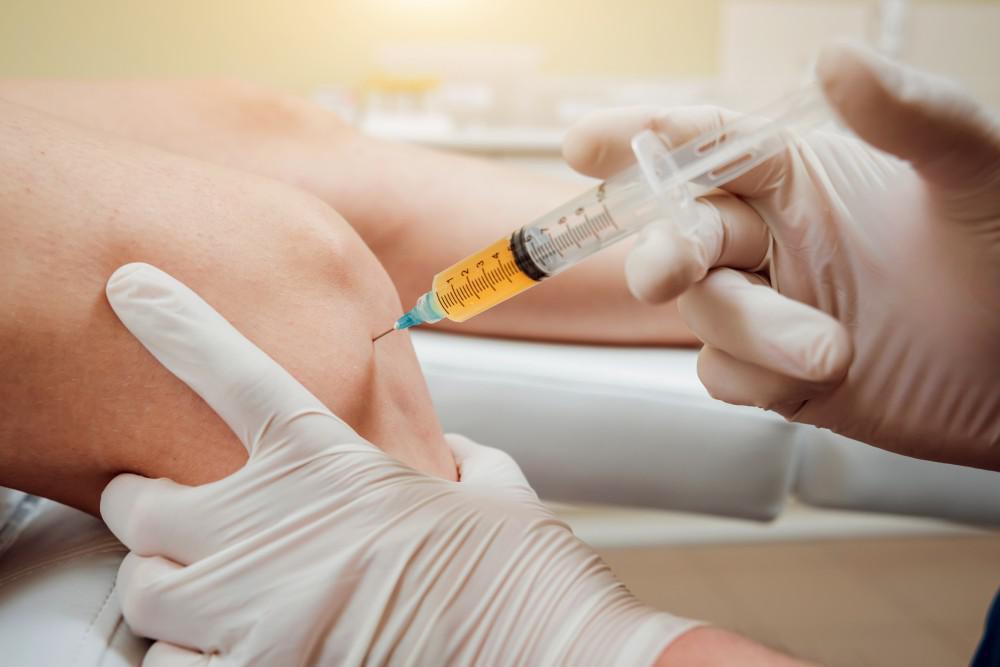Many people suffer from joint discomfort as a result of sports, exercise, aging, or other medical disorders. Many therapies are available to alleviate or eliminate this discomfort, including cortisone injections, which give medication directly to the affected area.
Cortisone shots can help ease uncomfortable symptoms including joint pain and inflammation. They are frequently recommended by doctors when other non-invasive treatments fail or when patients are in too much pain to engage in other treatments or their everyday lives.
Here are the main pros and cons of cortisone injections:
Pros
Cortisone injections can alleviate pain and swelling in specific joints caused by injury, aging, or a specific ailment. They have numerous possible benefits, including:
- Treating severe pain: Before using cortisone needles to relieve pain, doctors would normally attempt other options such as exercise, physical therapy, and over-the-counter drugs. When these non-invasive treatments fail and the pain becomes unbearable, doctors may recommend corticosteroid injections. A cortisone shot can assist in targeting inflammation and discomfort in specific joints, allowing a person to manage their pain while undergoing other therapies to heal their ailment, injury, or pain.
- Improving work and social lives: In many circumstances, joint pain and inflammation can impair a person’s ability to work or participate in social activities, especially if they often move heavy objects. Cortisone shots can help patients feel better and return to their normal lifestyles. If you’ve started to notice a deterioration in your quality of life due to joint discomfort, such as missing work or canceling plans with friends, chat with your doctor about how cortisone injections can help.
- Improving joint function: Joint pain, whether in your hands, feet, shoulder, spine, hip, or elsewhere, can make it difficult to do daily duties. Cortisone shots help reduce inflammation and discomfort, allowing you to return to your everyday activities without thinking about how you will manage your pain daily.
- Limiting the necessity for invasive procedures: Many patients desire to avoid surgery but are plagued with pain that makes it difficult for them to go about their everyday lives. Cortisone shots could be an ideal alternative to invasive procedures. Cortisone shots are less intrusive and can help lower discomfort so you can participate in long-term treatments like physical therapy or exercise.
- Confirming a diagnosis: Cortisone injections assist doctors in determining whether or not a patient is suffering from a specific problem or disease. If the cortisone injection is administered to a specific place and the patient finds relief, it helps to demonstrate that the pain and inflammation are coming from that source. This information assists doctors in making more accurate diagnoses and developing treatment plans that can provide patients with long-term relief.
Cons
Cortisone injections, like any other medical treatment, include some risk of side effects. Because they target your immune system to relieve inflammation and pain, they might also weaken it, making you more susceptible to infections or illnesses. As a result, doctors limit the number of cortisone shots you can receive each year. Shots are often administered once every three months for certain joints and up to four times per year for the complete body.
Some of the side effects of cortisone injections include:
- Inflammation or itching: Some patients suffer brief redness, itching, or soreness at the location of the injection. These side effects usually subside immediately after treatment.
- Increased blood sugar: Cortisone shots have the potential to raise blood sugar levels, especially in people who are struggling to control their diabetes. Your doctor should assess your current blood sugar levels before starting treatment to ensure you’re a good candidate for cortisone injections. You can also discuss with your doctor how to control your blood sugar levels before beginning treatment.
- High blood pressure: A few hours following therapy, some people report an increase in blood pressure. Those who have high blood pressure or a condition that causes high blood pressure should visit their doctor before obtaining a cortisone shot to ensure that it will not impact their blood pressure and raise it to dangerously high levels.
- Osteoporosis: Cortisone injections can cause bone density loss and an increased risk of fractures in some people. Discuss with your doctor the possibility of osteoporosis from these injections and how to reduce the risk.
- Increased fluid retention: Cortisone injections can increase the risk of fluid retention, resulting in limb swelling and lung congestion. Fluid retention is frequently caused by high, long-term dosages. You can discuss the right dose and other therapies with your doctor while receiving these shots.
- Mood changes: Cortisone injections can cause mood disturbances in certain people, especially when combined with glucocorticoid medication. The majority of people who have mood changes following cortisone shots have these adverse effects fade after a while, but a very tiny percentage of people endure lasting mood changes. You should discuss the possibility of mood changes following treatment with your doctor and devise a strategy to address this risk.
- Infection: If injections are not properly cared for, they pose a risk of infection. To reduce the risk of infection after receiving an injection, keep the site clean and dry until it heals.
Before having cortisone shots, talk to your doctor about your medical history and the possibility of adverse effects or consequences. Your doctor may walk you through the advantages and disadvantages of the injection, assisting you in determining the best course of action for your therapy.
